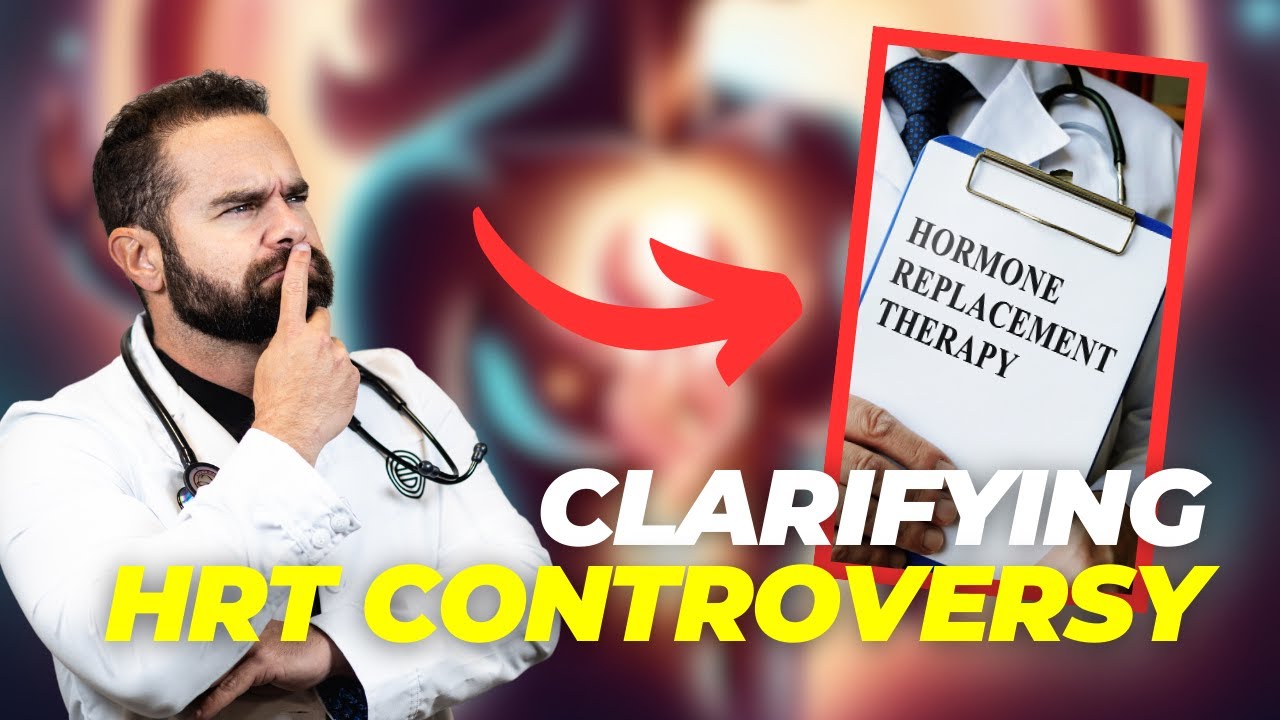
Will HRT automatically give me breast cancer? If you're a woman concerned about hormone replacement therapy (HRT) due to the ongoing debate about its link to breast cancer, you're not alone. The fear surrounding HRT and its association with breast cancer has been a topic of heated discussion for years. Many women shy away from the treatment, even if it could potentially improve their quality of life, due to the perception of increased cancer risk.
At Genesis Lifestyle Medicine, we believe in providing clear, evidence-based information to help you make informed decisions about your health. In this article, we'll address the misconceptions surrounding HRT and breast cancer, explain how HRT works, outline the benefits and potential side effects, and offer guidance on when and how HRT might be appropriate for you.
What is HRT, and how does it work?
Hormone replacement therapy (HRT) is a medical treatment that involves supplementing or replacing hormones like estrogen, progesterone (or a synthetic form called progestin), and sometimes testosterone. This treatment is often prescribed to women experiencing hormonal imbalances, particularly those going through menopause or who have had their ovaries or uterus surgically removed.
There are different types of HRT, each tailored to specific needs:
- Estrogen therapy: This involves taking estrogen alone, usually recommended for women who have had a hysterectomy (removal of the uterus). Estrogen therapy can help relieve symptoms such as hot flashes, vaginal dryness, and bone loss.
- Estrogen plus progestin therapy (EPT): This combines estrogen with progestin, a synthetic form of progesterone, to protect the uterus lining. EPT is prescribed for women who still have their uterus, as progestin reduces the risk of endometrial cancer.
- Testosterone therapy: Although not as common, testosterone can be used to enhance metabolism, boost sexual libido, and reduce signs of aging.
HRT can be administered through various forms, including oral tablets, skin patches, topical creams, vaginal rings, injections, or pellets. The method of administration and the choice of hormones depend on individual symptoms, medical history, and personal preferences.

The benefits of HRT
Relief from menopausal symptoms
One of the reasons women consider HRT is its ability to alleviate common menopausal symptoms. If you're experiencing hot flashes, night sweats, vaginal dryness, mood swings, or sleep disturbances, HRT can be effective in reducing or eliminating these symptoms.
Bone health and osteoporosis prevention
Estrogen plays a crucial role in maintaining bone density. During menopause, declining estrogen levels can lead to bone loss, increasing the risk of osteoporosis and fractures. HRT can help maintain bone strength, significantly reducing the risk of osteoporosis.
Cardiovascular and other benefits
HRT may have cardiovascular benefits, such as lowering the risk of heart disease and stroke, particularly when started early in menopause. Additionally, HRT has been shown to improve skin hydration, elasticity, and texture, leading to healthier skin and hair. It can also help reduce the risk of vaginal and urinary tract infections, making sexual intercourse more comfortable.
Common side effects of HRT
Like any medical treatment, HRT may cause side effects. These can include:
- Breast tenderness or swelling
- Irregular bleeding or spotting
- Nausea and digestive discomfort
- Headaches or migraines
- Fluid retention and bloating
- Mild mood swings, irritability, or increased libido
- Initial tiredness that gives way to increased energy and mental clarity

Should you fear breast cancer on HRT?
The relationship between HRT and breast cancer risk has been the subject of extensive research and debate in recent years. Some studies indicate that certain types of HRT, particularly estrogen-progestin combinations, can slightly increase the risk of breast cancer. However, this increased risk is generally associated with long-term use of HRT, especially after several years of continuous treatment.
Factors that affect breast cancer risk
Several factors influence the risk of breast cancer for women on HRT, including:
- Type of HRT: Estrogen-progestin therapy has a higher associated risk compared to estrogen-only therapy.
- Duration of use: Short-term use of HRT, especially when initiated close to the onset of menopause, is linked to a lower risk. Prolonged use may increase the risk.
- Timing and age: Starting HRT closer to menopause and using it for a shorter duration presents a lower risk compared to beginning at an older age and using it for many years.
- Individual health factors: Family history of breast cancer, genetic predispositions, lifestyle habits (e.g., smoking, alcohol consumption, physical activity), and overall health can also influence risk.
Regardless of HRT use, regular breast cancer screenings, including mammograms and clinical exams, are essential. Early detection and timely intervention can significantly improve breast cancer outcomes. We encourage women to undergo regular check-ups and communicate openly with their healthcare providers about their treatment plans.

The benefits often greatly outweigh the risks
For many women, the benefits of HRT—such as relief from menopausal symptoms, improved bone health, and better quality of life—can greatly outweigh the potential risks. When used at the lowest effective dose for the shortest duration necessary, HRT can provide significant health benefits with minimal risk. However, it’s crucial to work closely with experienced healthcare professionals to tailor a treatment plan that suits your individual needs.
At Genesis Lifestyle Medicine, we offer personalized, patient-centered care to help you navigate these issues. Our team will work with you to determine if HRT is the right choice, address any concerns you may have, and guide you through a safe and effective treatment plan. If you have any questions or want to explore HRT options, schedule a consultation with our experts.




